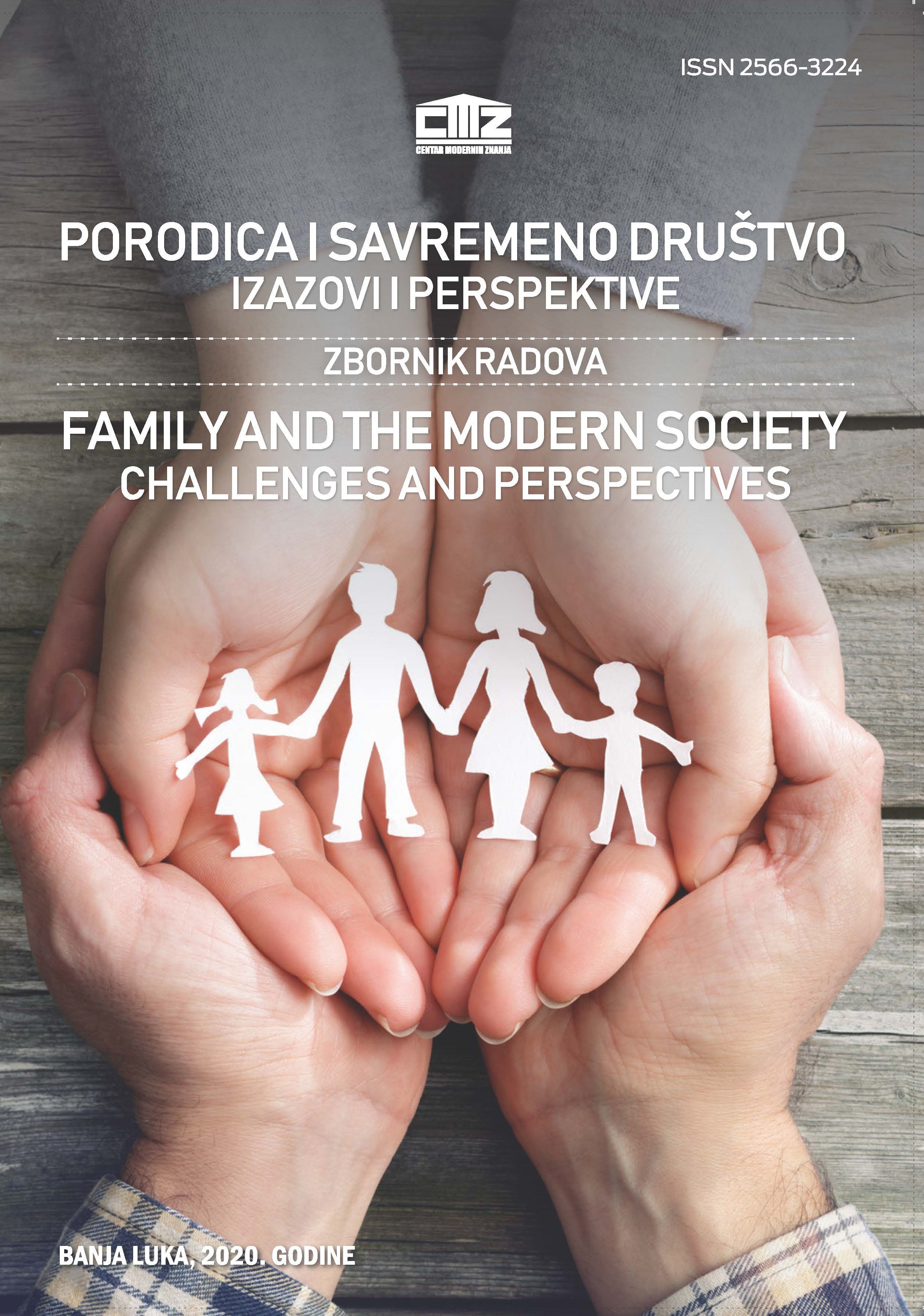KOMUNIKACIJA U PORODICI GLUVE I NAGLUVE DECE
COMMUNICATION IN A FAMILY OF DEAF AND HARD OF HEARING CHILDREN
Author(s): Tamara KovačevićSubject(s): Psychology, Sociology, Family and social welfare, Inclusive Education / Inclusion
Published by: CENTAR MODERNIH ZNANJA
Keywords: family; communication; deaf and hard of hearing children;
Summary/Abstract: The main objective of the paper is, by reviewing the available literature, to point to modes of communication and certain characteristics of the functioning of a family with a deaf and hard of hearing child. Families with a deaf or hard of hearing child are different from other families in many respects. Due to hearing impairments and a changed way of communicating with the environment, deaf and hard of hearing children develop under more unfavorable conditions than normal hearing children. A large number of deaf and hard of hearing children have specific problems in the fields of communication and interaction. The child's inability to communicate with family and other children isolates it, with the passage of time, and leads to deeper difficulties in the social and emotional plan and overall development.Communication is one of the fundamental elements of living, because its use is for the communication of people in a certain community. Communication or language provide the society with a medium and means for socializing its members. Appropriate and efficient early communication, regardless of the language modality (sign or speech) within which it takes place, together with accepting the child and its impairment, is the basis for successful cognitive development and the development of the child’s personality, which represents the basis of communication and the development of language skills. Communication of the deaf and hard of hearing children can be verbal (oral and written) and non-verbal (which involves sign language as well as the use of manual alphabet – dactylology, mime and lip-reading). Which form of communication the deaf and hard of hearing children will use and develop depends, to a large degree, on whether they come from a family of deaf parents or of hearing ones. A large number of studies, indicate that families of deaf and hard of hearing children need various forms of social support: psychological, financial, informational, spiritual and educational support. The support of the community - of the health, education and social protection systems is necessary to the parents. The family needs to be educated on hearing impairment, its consequences, amplification models, different ways of communicating with, upbringing and educating deaf and hard of hearing children. It is necessary to organize various support programs, to improve communication within the family as well as the cooperation of the family and experts of various specialties involved in the rehabilitation and education of deaf and hard of hearing children.
Journal: DRUŠTVENE DEVIJACIJE
- Issue Year: V/2020
- Issue No: 5
- Page Range: 365-374
- Page Count: 10
- Language: Serbian

